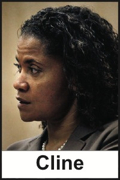Rascals case in brief
In the beginning, in 1989, more than 90 children at the Little Rascals Day Care Center in Edenton, North Carolina, accused a total of 20 adults with 429 instances of sexual abuse over a three-year period. It may have all begun with one parent’s complaint about punishment given her child.
Among the alleged perpetrators: the sheriff and mayor. But prosecutors would charge only Robin Byrum, Darlene Harris, Elizabeth “Betsy” Kelly, Robert “Bob” Kelly, Willard Scott Privott, Shelley Stone and Dawn Wilson – the Edenton 7.
Along with sodomy and beatings, allegations included a baby killed with a handgun, a child being hung upside down from a tree and being set on fire and countless other fantastic incidents involving spaceships, hot air balloons, pirate ships and trained sharks.
By the time prosecutors dropped the last charges in 1997, Little Rascals had become North Carolina’s longest and most costly criminal trial. Prosecutors kept defendants jailed in hopes at least one would turn against their supposed co-conspirators. Remarkably, none did. Another shameful record: Five defendants had to wait longer to face their accusers in court than anyone else in North Carolina history.
Between 1991 and 1997, Ofra Bikel produced three extraordinary episodes on the Little Rascals case for the PBS series “Frontline.” Although “Innocence Lost” did not deter prosecutors, it exposed their tactics and fostered nationwide skepticism and dismay.
With each passing year, the absurdity of the Little Rascals charges has become more obvious. But no admission of error has ever come from prosecutors, police, interviewers or parents. This site is devoted to the issues raised by this case.
On Facebook
Click for earlier Facebook posts archived on this site
Click to go to
Today’s random selection from the Little Rascals Day Care archives….
Click for earlier Facebook posts archived on this site
Click to go to
Today’s random selection from the Little Rascals Day Care archives….
Tracey Cline, Mike Nifong and H.P. Williams
 March 21, 2012
March 21, 2012
“In July 1993, (Tracey Cline) headed to the state’s northeast corner to work as a prosecutor in a cluster of counties near Elizabeth City. Her stint there was short-lived, just six months, and unremarkable, according to supervisors….
“ ‘I hated to see her leave….’ (former District Attorney H. P.) Williams said. ‘I would have given her a good recommendation.’ ’’
– From the News & Observer of Raleigh, February 19, 2012
Williams may have nothing to say on behalf of the innocent Little Rascals defendants, but he seems ever eager to speak well of Cline and Durham’s other epically unethical DA.
Junior Chandler victimized by overreaching experts
 Jan. 31, 2012
Jan. 31, 2012
Expert vouching.
That odd little legalism is the crucial issue in Junior Chandler’s latest – and perhaps last – shot at justice. Durham attorney Mark Montgomery has just filed an appeal on Junior’s behalf in the N.C. Supreme Court.
In Junior’s 1987 trial in Buncombe County, the prosecution ran out no fewer than six expert witnesses, including three pediatricians.
Each expert testified that Junior’s alleged victims had in fact been sexually abused “as they described” – but none could cite definitive physical evidence on which they based their validation.
In the years since, higher courts have seen the reversible error of those ways. Expert vouching is now inadmissible in the absence of physical evidence “diagnostic of” – not just “consistent with” – sexual abuse.
The case against Junior was weak and weird on all fronts. No credible eyewitnesses or physical evidence. No storyline that made a lick of sense. (Although prosecutor Bill Hart must have liked the kidnapping-and-boat-ride scenario – he called on it again four years later in the Little Rascals trial.)
Only four children testified against Junior, accounting for less than 2 percent of the 1,407-page trial transcript. Some claimed to have been abused by… Pinocchio. And jurors never heard from those children on Junior’s bus who denied seeing abuse.
Just how important was expert vouching in imposing Junior’s two consecutive life sentences?
On all charges supported by expert vouching the jury found him guilty. On all charges not supported by expert vouching it found him not guilty.
Unaccountable prosecutors: A familiar story
May 15, 2013
“As one of the lead prosecutors, (Elizabeth Lederer) helped lock up five young people (the Central Park Five) based on false confessions, no DNA evidence and media hysteria, for a collective 30 years….
“Lederer never apologized. Today, she still serves as an assistant district attorney and teaches at Columbia Law School, one of the most prestigious institutions in the country. While those wrongfully convicted lost years of their lives, her efforts to imprison them had no negative consequences for her…. People like Lederer whose failures cost livelihoods should be held accountable for their actions….
“Defending Lederer’s role in the case as an aggressive lead prosecutor, (New York Times columnist Jim) Dwyer dismissed that as: ‘Mistakes were made.’ That’s the standard public relations line used when trying to deflect blame. But what kinds of mistakes? What were their effects?”
– From “For Central Park Five, wrongful conviction meets false equivalence” by Raymond Santana and Frank Chi at Salon.com (May 3)
You know where I’m going with this: the Edenton Seven were locked up for some 15 years, and the “aggressive lead prosecutor” in their case remains ensconced on the state payroll, still unrepentant – and always available to share her expertise on “how to defend the forensic interview in the courtroom.”
Perhaps, however, the notoriety she achieved as Little Rascals prosecutor helps explain why she hasn’t risen to district attorney or to district court judge.
Even if so, of course, that consequence wouldn’t begin to atone for the horrors she inflicted over a nonexistent crime.
Psychiatry, the devil and Gloria Steinem
 March 24, 2014
March 24, 2014
As described in Richard Noll’s “When Psychiatry Battled the Devil,” the 7th annual conference of the International Society for the Study of Multiple Personality and Dissociation, held in Chicago in November 1990, proved to be a turning point in mainline psychiatry’s attitude toward “satanic ritual abuse” and the multiple personalities it supposedly spawned.
It was also notable for the involvement of perhaps the country’s most celebrated believer in SRA.
“A large hotel ballroom (was) filled with most of the more than 700 conference attendees,” Noll recalled. “Television crews were on hand…. So was Gloria Steinem….
“(Anthropologist Sherrill) Mulhern and I were strident in our outright rejection of the veracity of SRA claims….
“Steinem approached me after my talk and suggested materials to read which she felt would help me change my opinion of SRA accounts….”
Not only had Steinem been using Ms. magazine to promote claims of ritual abuse, MPD and repressed memory, but also – just months before the Chicago conference – she had underwritten an archeological search for the imaginary “McMartin tunnels.”
I asked Noll what else he remembered about their encounter.
“She came up to me while I was still sitting up on stage and hundreds of people were still milling around. I didn’t recognize her at first until I stared down at her name tag, then she rolled her eyes and made a face that indicated, ‘Yeah, it’s me . . . .’
“She wrote down a couple of titles that I frankly do not remember….You know, for years I saved that piece of paper she wrote on.”
As far as I can tell, Steinem has never removed her name from the very long list of unapologetic SRA believers. But who knows – maybe it’s a position she will want to reexamine as an octogenarian.











0 CommentsComment on Facebook